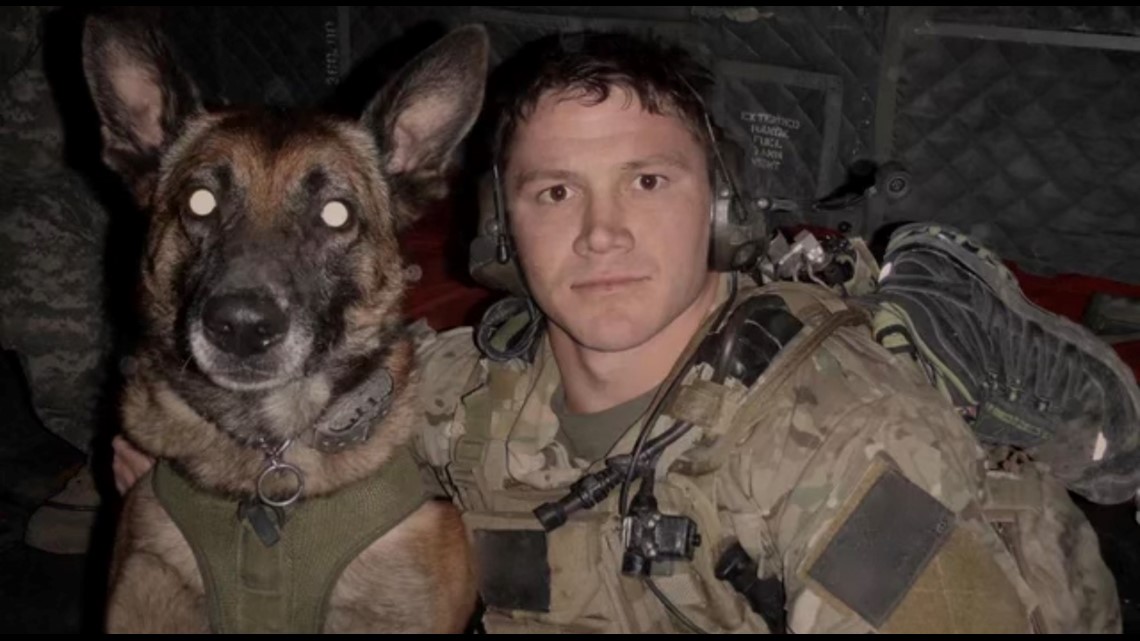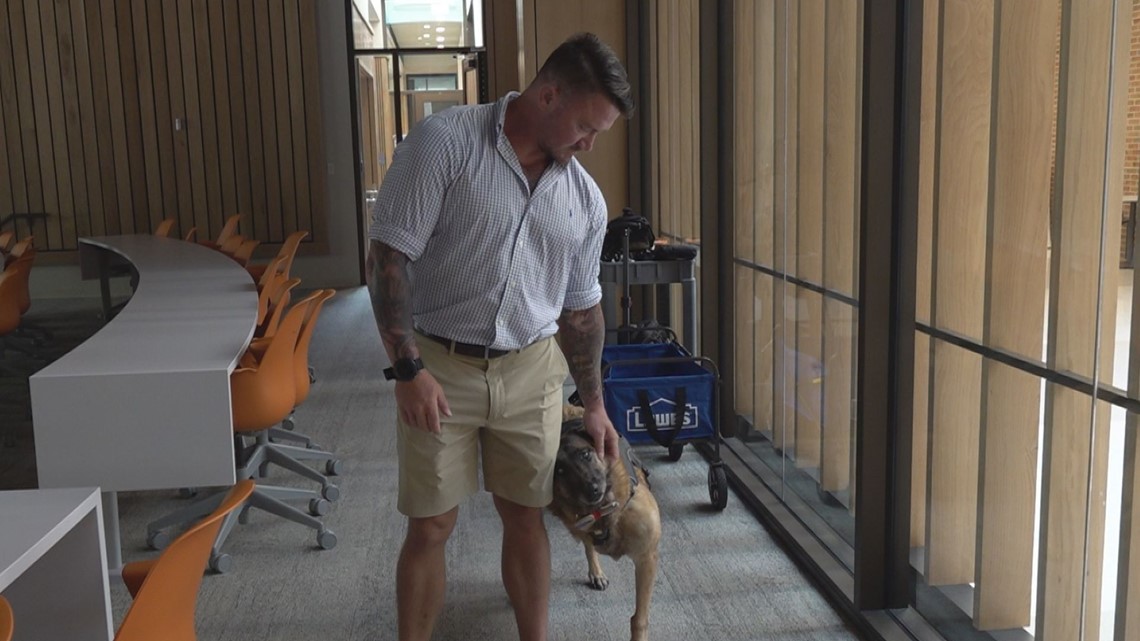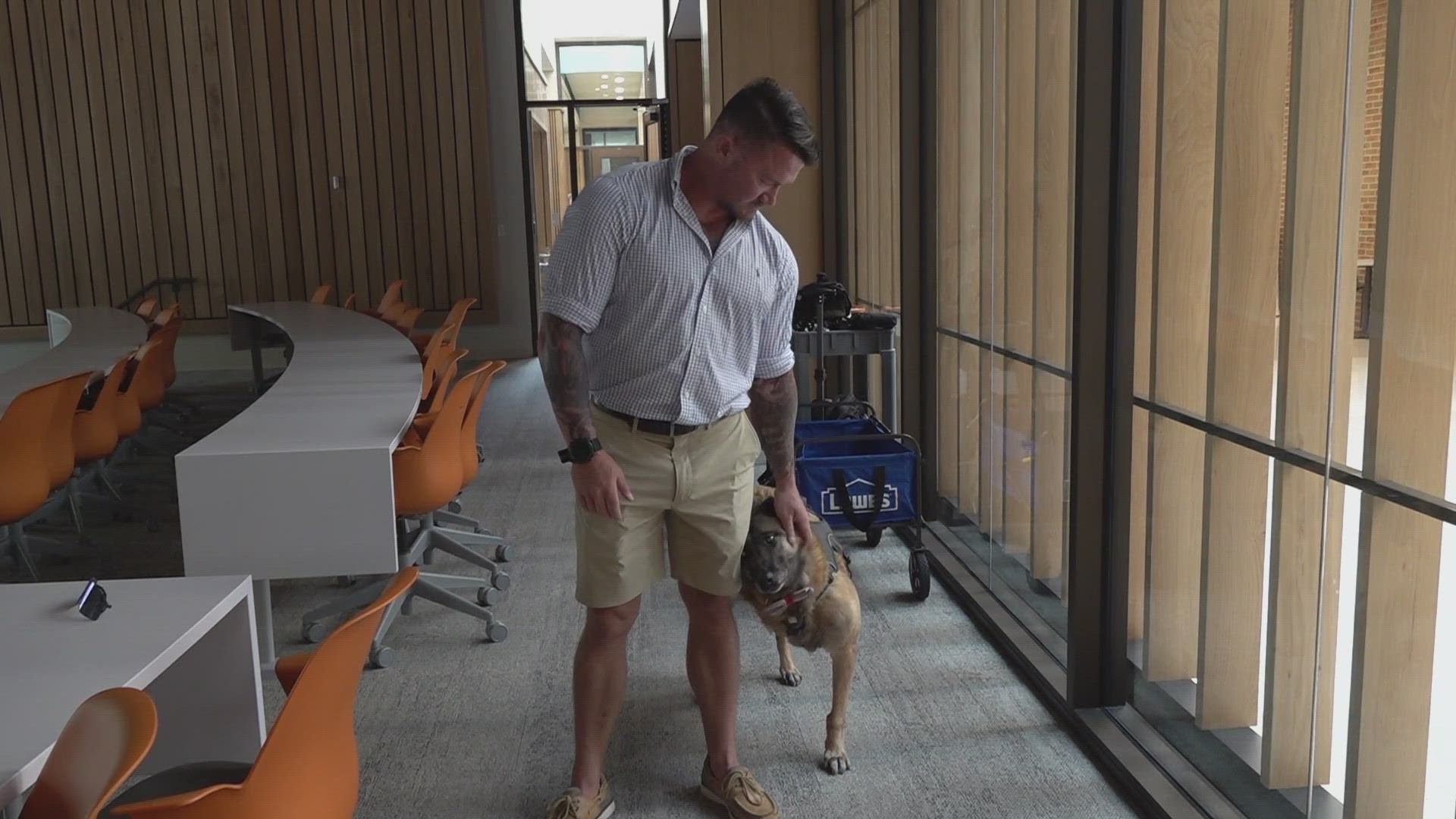KNOXVILLE, Tenn. — On a mission at war, Layka took rounds from an automatic rifle. This helped save the lives of fellow troops but she sacrificed a leg.
Saturday was the 25th-anniversary celebration that honors working dogs. The University of Tennessee College of Veterinary Medicine held a re-dedication of the War Dog Memorial on Saturday.
Layka sat by her owner's side as an honorary guest but she wasn't the first dog to save Sgt. Julian Trent McDonald.
"I had my original dog named Benno," McDonald said. "[We] had ran over 743 Special Operation missions with 43 apprehensions 10, I'd find six combat ropes and you know, it was just a warrior."


McDonald comes from a long line of men who were in the military, from his father to his great-great-grandfather.
He joined the army in 2005 and did eight combat deployments from 2005 to 2015. Four of those deployments were done as a dog handler to Afghanistan, he said.
"I was 20 years old, 9/11 happened... when I was in ninth grade. So that was my calling," McDonald said.
During one of the battles, he lost Benno after an enemy combatant shot him in the head. This was a day McDonald would remember forever because it was on his birthday, April 27, 2012.
"At that point in time, that's when I was given Layka as my spare dog," he said. "She was only about a year old. She... had never ran any missions before, never had done anything spectacular before. She was a clean slate."
McDonald and Layka worked on special operation missions that he was running, doing direct night action raids. On one of those missions, McDonald said a building was dilapidated so they believed everything inside there had been neutralized and killed. When they let in the K9, Layka entered and cleared the first point of domination.
Suddenly he identified her from a string for night vision on her back inside a room. She was in the corner and was engaging what McDonald thought was a dead body at the time. When he went up to pull her off that dead body, the man was not dead.
"That's when he began to fire... anywhere between six to eight controlled shots with an AK-47 and point-blank range, essentially hitting her four of those times," McDonald said. "Once in the tricep, came up underneath and hit her in the tricep. Hit her right up top in the ball and socket completely decimating that joint and that's why she's missing that leg. And then she has two superficial wounds that skipped across the bottom of her stomach."


The ceremony was a special occasion for the College of Veterinary Medicine. It was one of the few memorials in the U.S. and the only one at the University of Tennessee.
"These dogs are heroes... they save lives," Dean of the College of Veterinary Medicine Jim Thompson said. "They work with people and they do it with complete unselfishness."
The memorial unveiled in 1998 lauds the war dogs, mostly Doberman pinschers, who helped liberate Guam during World War II and saved hundreds of Marines.
A poem was sighted at the memorial to express the special bond between K9s and handlers that said, "I will protect you with my last breath. When all others have left you and the loneliness of the night closes in, I will be at your side."
Four-legged heroes come in all sizes and all have a common goal.
"Oh, absolutely. [Layka] saved my life. And probably... six of my team members' lives that were inside that room," McDonald said. "It was either I adopted or they put her down and I was like, 'I'm not gonna let the enemy win when she saved my life.' So I had to take it upon myself to save hers."

